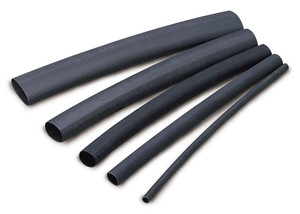Introduction to Glue Electronics
Glue electronics refer to specialized adhesive solutions designed for bonding electronic components, providing an essential role in the assembly and repair of electronic devices. These adhesives offer not only a strong bond but also properties that are crucial for electronic applications, such as electrical conductivity, thermal resistance, and moisture protection. As the demand for reliable electronic assemblies grows, understanding the various types and applications of glue electronics becomes increasingly important for manufacturers and technicians alike.
Types of Glue Electronics
Glue electronics come in various formulations, each tailored for specific applications within the electronics industry. The major types include:
- Epoxy Adhesives: Known for their exceptional bonding strength and thermal stability, epoxy adhesives are ideal for securing components in high-temperature environments.
- Conductive Adhesives: These adhesives incorporate metal particles to create electric pathways, making them perfect for applications involving circuit connections.
- Silicone Adhesives: Flexible and resistant to moisture and temperature fluctuations, silicone adhesives are commonly used for sealing and protecting electronic assemblies.
- UV-Curable Adhesives: These adhesives cure quickly upon exposure to ultraviolet light, enabling fast production speeds in manufacturing processes.
Applications of Glue Electronics
The applications for glue electronics are diverse, spanning across multiple sectors. Their use is prominent in:
- Consumer Electronics: Glue electronics are crucial in assembling smartphones, tablets, and laptops where precise and durable bonding is required.
- Automotive Industry: Adhesives are employed in various components such as sensors, wiring, and displays, ensuring they withstand vibrations and temperature changes.
- Industrial Equipment: They are essential for securing components in heavy machinery and equipment, providing reliability under demanding conditions.
- Medical Devices: Adhesives used in the medical field must meet stringent standards for safety and biocompatibility, making glue electronics vital in device manufacturing.
Advantages of Using Glue Electronics
The incorporation of glue electronics in electronic assembly provides numerous advantages:
- Strength and Durability: Advanced adhesive formulations ensure a strong bond that can withstand various stress factors, enhancing the longevity of electronic devices.
- Vibration Resistance: Glue electronics help absorb vibration, reducing the risk of component damage in high-movement applications.
- Electrical Insulation or Conductivity: Depending on the type, these adhesives can either insulate against electricity or facilitate electrical connections, catering to specific assembly needs.
- Moisture and Heat Resistance: Many glue electronics are formulated to provide resistance to moisture, chemicals, and heat, ensuring the integrity of the bonds under different environmental conditions.













































